Loading the player...
FDA Approves Sacituzumab Govitecan-hziy for Metastatic TNBC
The FDA has approved sacituzumab govitecan-hziy for adults with unresectable locally advanced or metastatic triple-negative breast cancer (TNBC) who have received two or more prior systemic therapies, including at least one for metastatic disease.
A release from the manufacturer describes the treatment as a first-in-class antibody and topoisomerase inhibitor conjugate directed to the Trop-2 receptor, which is frequently expressed in various tumors, including TNBC.
The approval is based on data from the phase 3 ASCENT study, which showed the treatment demonstrated a 57% reduction in the risk of progression-free survival.
Trial data showed the treatment also extended progression-free survival to 4.8 months from 1.7 months with chemotherapy (HR: 0.43; 95% CI: 0.35-0.54; p<0.0001). Median overall survival was also extended from 6.9 months to 11.8 months (HR: 0.51; 95% CI, 0.41-0.62; p<0.0001).
“Women with triple-negative breast cancer have historically had very few effective treatment options and faced a poor prognosis.Today’s FDA approval reflects the statistically significant survival benefit seen in the landmark ASCENT study and positions sacituzumab govitecan-hziy as a potential standard of care for pre-treated TNBC,” according to Aditya Bardia, MD, MPH, Director of the Breast Cancer Research Program at Mass General Cancer Center, in the release
According to the release, the safety profile of the medication was consistent with the previously approved label.
The most frequent ≥3 adverse reactions compared to single-agent chemotherapy were neutropenia (52% vs. 34%), diarrhea (11% vs. 1%), leukopenia (11% vs. 6%), and anemia (9% vs. 6%.). Adverse reactions leading to treatment discontinuation were reported in 5% of patients who received the treatment during the trial.
The manufacturer noted that similar regulatory applications for metastatic TNBC have been filed in the United Kingdom, Canada, Switzerland, and Australia.
The European Medicines Agency has also validated a Marketing Authorization Application. The medication is also being developed as a potential treatment for other forms of cancer, including HR+/HER 2- metastatic breast cancer.
By Adam Hochron
A release from the manufacturer describes the treatment as a first-in-class antibody and topoisomerase inhibitor conjugate directed to the Trop-2 receptor, which is frequently expressed in various tumors, including TNBC.
The approval is based on data from the phase 3 ASCENT study, which showed the treatment demonstrated a 57% reduction in the risk of progression-free survival.
Trial data showed the treatment also extended progression-free survival to 4.8 months from 1.7 months with chemotherapy (HR: 0.43; 95% CI: 0.35-0.54; p<0.0001). Median overall survival was also extended from 6.9 months to 11.8 months (HR: 0.51; 95% CI, 0.41-0.62; p<0.0001).
“Women with triple-negative breast cancer have historically had very few effective treatment options and faced a poor prognosis.Today’s FDA approval reflects the statistically significant survival benefit seen in the landmark ASCENT study and positions sacituzumab govitecan-hziy as a potential standard of care for pre-treated TNBC,” according to Aditya Bardia, MD, MPH, Director of the Breast Cancer Research Program at Mass General Cancer Center, in the release
According to the release, the safety profile of the medication was consistent with the previously approved label.
The most frequent ≥3 adverse reactions compared to single-agent chemotherapy were neutropenia (52% vs. 34%), diarrhea (11% vs. 1%), leukopenia (11% vs. 6%), and anemia (9% vs. 6%.). Adverse reactions leading to treatment discontinuation were reported in 5% of patients who received the treatment during the trial.
The manufacturer noted that similar regulatory applications for metastatic TNBC have been filed in the United Kingdom, Canada, Switzerland, and Australia.
The European Medicines Agency has also validated a Marketing Authorization Application. The medication is also being developed as a potential treatment for other forms of cancer, including HR+/HER 2- metastatic breast cancer.
By Adam Hochron



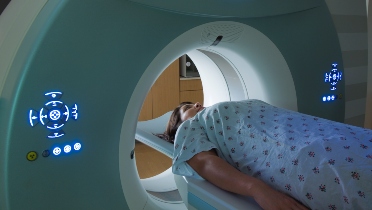



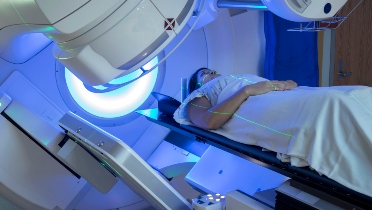



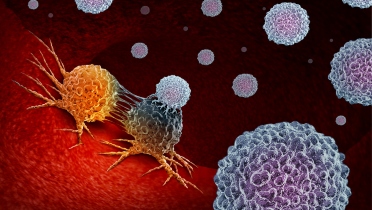




.jpg)

.jpg)
.jpg)
.jpg)
.jpg)
.jpg)
.jpg)



.jpg)
.jpg)
.jpg)
.jpg)
.jpg)
.jpg)

.jpg)
.jpg)
.jpg)
.jpg)
.jpg)
_.jpg)
.jpg)
.jpg)
.jpg)
.jpg)
.jpg)
.jpg)


.jpg)
.jpg)
.jpg)


.jpg)


.jpg)


.jpg)

.jpg)
.jpg)
.jpg)
.jpg)
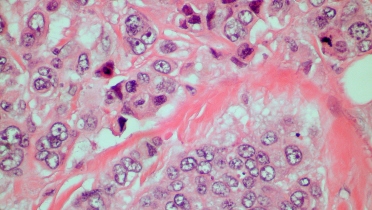
.jpg)
.jpg)
.jpg)


.jpg)
.jpg)
.jpg)
.jpg)
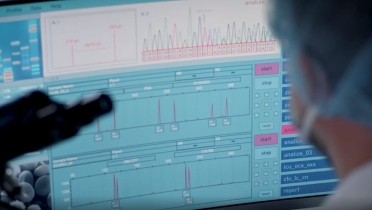
.jpg)
.jpg)

.jpg)
.jpg)
.jpg)
.jpg)

.jpg)

.jpg)
.jpg)
.jpg)
.jpg)
.jpg)
.jpg)

.jpg)
.jpg)
.jpg)
.jpg)

.jpg)
.jpg)
.jpg)
.jpg)
.jpg)
.jpg)
.jpg)


.jpg)

.jpg)

.jpg)
.jpg)

.jpg)
.jpg)
.jpg)
.jpg)
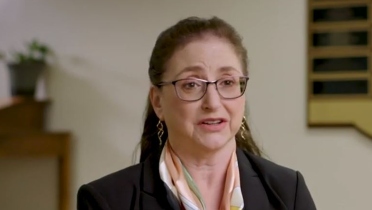
.jpg)


.jpg)
.jpg)
.jpg)
.jpg)
.jpg)
.jpg)
 Featured Breast Cancer Videos
Featured Breast Cancer Videos.jpg)